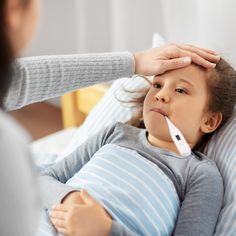
Treating Fever in Young Children
Fever in young children can be a cause for concern for many parents. While it’s often a sign that the body is fighting off an infection, it’s essential to know how to manage it effectively. The first step is to accurately measure the child’s temperature using a reliable thermometer. For children under three months, a rectal temperature of 100.4°F (38°C) or higher is considered a fever and requires immediate medical attention.
For older children, fever-reducing medications like acetaminophen or ibuprofen can be administered according to the recommended dosage for their age and weight. It’s crucial to avoid aspirin due to the risk of Reye’s syndrome. Keeping the child hydrated is vital, so offer plenty of fluids. Dress them in light, breathable clothing and maintain a comfortable room temperature.
While medication can help, it’s not always necessary if the child is comfortable and drinking fluids. Monitor their behavior and energy levels, as these can be better indicators of their overall health than temperature alone. If the fever persists for more than three days, is accompanied by other concerning symptoms, or if you’re unsure about treatment, consult a healthcare professional.
Remember, fever is often a helpful immune response, so the goal is to make the child comfortable rather than to eliminate the fever entirely. With proper care and attention, most childhood fevers resolve without complications.




